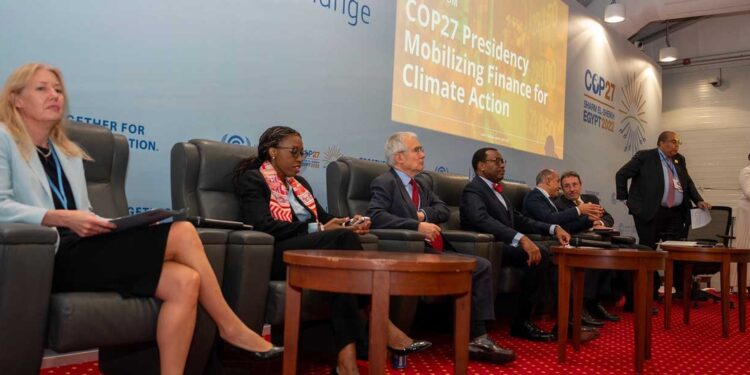Global experts meeting during a panel session at the 27th global climate summit (COP27) in Egypt have endorsed a new climate finance roadmap to mobilize $1 trillion in annual external finance required by emerging markets and developing countries—excluding China.
The roadmap draws on the findings of a recently released report, Finance for climate action: Scaling up investment for climate and development(link is external), produced by a panel of experts chaired by Vera Songwe and Lord Nicholas Stern.
The discussions during the panel session underscored the need to boost effectiveness of policies by tailoring them to countries’ needs. The report advocates a rapid and sustained investment push to drive a strong and sustainable economic recovery from overlapping crises and to deliver on shared development and climate targets.
Dreams Talks With Türkiye´s New Ambassador to Equatorial Guinea, Adnan Keçeci
Songwe said investment priorities must encompass transformation of the energy system, address developing countries’ growing vulnerability to climate change and undo earlier harm to natural capital and biodiversity.
“The scale of investments needed in emerging markets and developing countries over the next five years and beyond will require a debt and financing strategy that tackles festering debt difficulties, especially those of poor and vulnerable countries,” Songwe said. She added that reforms must lead to a major expansion of domestic and international finance –public and private, concessional and non-concessional.
African Development Bank President Dr. Akinwumi Adesina decried the inadequate flow of climate finance to Africa. “The whole conversation about rich nations paying Africa $100 billion cannot even compensate Africa,” he said.
Zimbabwe and Uganda Launch First Homegrown Satellites Into Space
Adesina said African Development Bank initiatives like the African Adaptation Acceleration Program (AAAP)—a scheme developed by the bank and the Global Center on Adaptation in 2021—was mobilizing $25 billion to scale adaptation action across the continent. He said AAAP had so far drawn contributions from industrialized countries. He added that the African Development Fund, the African Development Bank Group’s concessional lending arm to low-income countries, was launching a climate action window to mobilize up to $13 billion for climate adaptation for vulnerable countries.
Adesina reiterated the call for International Monetary Fund Special Drawing Rights (SDRs) to be channeled to African countries through the African Development Bank. “SDRs will play a big role in helping Africa’s climate action, and the African Development Bank is well-positioned to leverage this reallocation four times to help mobilize financing for countries that need it most,” he said.
AFAWA – Women Entrepreneurship Enablers Program Call for Proposals
Stephanie Pfeifer, Chief Executive of Institutional Investors Group on Climate Change(link is external)—an association representing investors—said strong policies were vital in carbon pricing to phase out fossil fuels.
“The world needs development finance at scale for different types of risks, and data must also be made available to stimulate increased private sector investment into climate finance,” Pfeifer said.” If we get the whole system working together, we can make a lot of progress,” she added.
United Nations Climate Change Champion Mahmoud Mohyedin moderated the session, titled Facilitating finance necessary for delivery of commitments.









